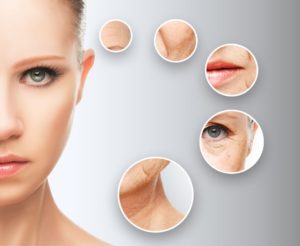Can you start your day without your favorite cup of coffee? Probably not. About 85% of people in the U.S drink at least one caffeinated drink per day. Caffeine is so helpful in boosting energy levels, but overconsumption can impact your sleep and your overall health.
What is Caffeine?
Caffeine is a bitter substance naturally present in more than 60 plants, including coffee beans, tea leaves, cola nuts, and cacao pods. In addition, some synthetic caffeine is available in pain relieving medicines, foods, and drinks.
How Much Caffeine Should You Consume Daily?
Caffeine is not safe for children, anxiety patients, pregnant or breastfeeding women, and people with heart problems and high blood pressure. If you do not fall into any categories, caffeine is safe to consume in moderation. According to Food and Drug Administration, adults can consume 400 milligrams of caffeine per day (about 4-5 cups of coffee a day)
Another essential thing to consider is caffeine affects people differently. For example, some feel alert for hours after drinking only one cup of coffee, while other needs several cups a day. Regardless of sensitivity, everyone should consume within the recommended limits.
How Much Caffeine is Present in Common Drinks?
The amount of caffeine varies among the different food and drinks. Here are some approximate amounts.
- Twelve ounces of Caffeinated Drinks- 30-40 mg
- Eight ounces of Green tea or black tea- 30-50 mg
- Eight ounces of coffee- 80-100 mg
- Eight ounces of decaf coffee- 2-15 mg
- Eight ounces of energy drinks- 40-250 mg
- One ounce of dark chocolate- 12 mg
All the values mentioned above are the average. Make sure to check the product’s label before consuming it to avoid the excessive intake of caffeine.
Side Effects of Consuming Too Much Caffeine
Caffeine is not terrible. It is a fantastic stimulant and energy booster and takes part in improving physical and mental health. However, overconsumption can lead to several unpleasant side effects, such as:
-
Interfere With Your Sleep
People usually consume more coffee to go through rough and challenging days. The trouble is too much caffeine keeps you awake the following night. It takes 5-6 hours for half of the caffeine you consume to be eliminated from your body and almost 24 hours to clear your system entirely.
-
Impacts Your Gut
Caffeine has acidic nature. Due to laxative properties, it affects your gut health and can trigger acid reflux. Overconsumption of caffeine can cause heartburn, cramping, indigestion, nausea, and diarrhea.
-
Causes Headache
Moderate caffeine consumption helps relieve headaches, but when you become too habitual with caffeine, it can result in lasting headaches. In addition, your body feels the withdrawal symptoms and rebound fatigue when you skip your usual pot of coffee. So, try to limit your caffeine intake slowly to suppress the withdrawal repercussions.
-
Induces Anxiety
Moderate caffeine consumption contributes to the feeling of happiness, but when you go beyond the 6 cups of coffee a day, it triggers anxiety. This is because caffeine activates the release of adrenaline, the fight or flight hormone. Extremely high doses cause nervousness and restlessness.
-
Increases Heart Rate
The stimulatory effect of caffeine causes your heart to beat faster than usual. It alters your heartbeat rhythm. However, this effect is not common among everyone. Drinking 3-4 cups of coffee bring mild changes to heart rate. People who are sensitive to caffeine or other health issues should limit its consumption if they feel their heartbeat is affected in any way.
The Bottom Line
Caffeine is safe to consume in moderation. However, if you consume too much of it, you may experience unpleasant side effects. Moreover, it affects people differently. Therefore, reduce caffeine consumption if you feel any discomfort with it.
*Information in this article is not medical advice and may not be factually accurate. It is intended for entertainment purposes only. Consult with a physician before attempting any tips in this blog post and to get the most up to date factual data about any procedure or treatment.














